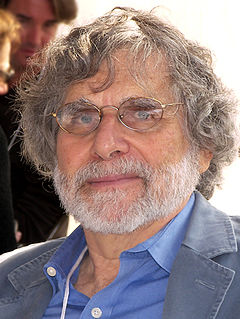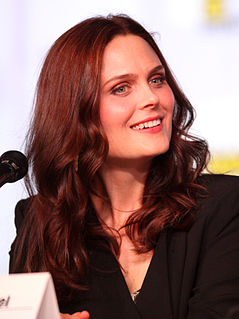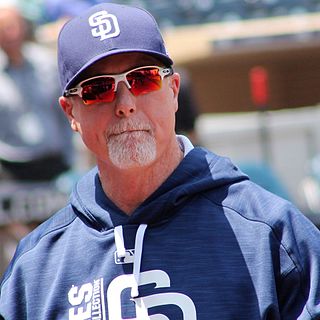A Quote by Frederick Lenz
The samurais lived with death constantly. They wore a short dagger to take their own life if need be. At any moment they might have to do that, it was a part of their code.
Related Quotes
If I lived by some code, my actions would become predictable. The enemy would take advantage of this and I’d be killed. An honorable death doesn’t exist. Death is death. But it’s funny that survival and revenge require the same thing: no honor codes, no supposed higher principles to aspire to, no mercy
We are left with nothing but death, the irreducible fact of our own mortality. Death after a long illness we can accept with resignation. Even accidental death we can ascribe to fate. But for a man to die of no apparent cause, for a man to die simply because he is a man, brings us so close to the invisible boundary between life and death that we no longer know which side we are on. Life becomes death, and it is as if this death has owned this life all along. Death without warning. Which is to say: life stops. And it can stop at any moment.
A lot of people are not used to having death in their lives or anything like that and I think that's not incredibly natural either. So it definitely can take its toll. At the same time I think it's important to face your own mortality, which I do most every day by doing the show, to realize that your life is short and to take the opportunities that you need to take and be fearless.
I was living my own future and my brother's lost one as well. I represented him here just as he represented me there, in some unguessable other place. His move from life to death might resemble my stepping into the kitchen - into its soft nowhere quality and foggy hum. I breathed the dark air. If I had at that moment a sense of calm kindly death while my heart beat and my lungs expanded, he might know a similar sense of life in the middle of his ongoing death.
I lived through the Cold War as a child, and we always thought a nuclear bomb could end life everywhere at any time. On one hand, it created an atmosphere where you lived for the moment - because it could end at any second - but on the other, it warped a generation into thinking t there was no reasonable expectation of building a future that could be vaporized at any moment by a few morons.
By 'coming to terms with life' I mean: the reality of death has become a definite part of my life; my life has, so to speak, been extended by death, by my looking death in the eye and accepting it, by accepting destruction as part of life and no longer wasting my energies on fear of death or the refusal to acknowledge its inevitability. It sounds paradoxical: by excluding death from our life we cannot live a full life, and by admitting death into our life we enlarge and enrich it.
The dignity to be sought in death is the appreciation by others of what one has been in life,... that proceeds from a life well lived and from the acceptance of one's own death as a necessary process of nature.... It is also the recognition that the real event taking place at the end of our life is our death, not the attempts to prevent it.
The man who has lived his life totally, intensely, passionately, without any fear - without any fear that has been created in you by the priests for centuries and centuries - if a person lives his life without any fear, authentically, spontaneously, death will not create any fear in him, not at all. In fact, death will come as a great rest. Death will come as the ultimate flowering of life. He will be able to enjoy death too; he will be able to celebrate death too.
In the daily lives of most men and women, fear plays a greater part than hope: they are more filled with the thought of the possessions that others may take from them, than of the joy that they might create in their own lives and in the lives with which they come in contact. It is not so that life should be lived.
If I had my life over again I should form the habit of nightly composing myself to thoughts of death. I would practise, as it were, the remembrance of death. There is no other practice which so intensifies life. Death, when it approaches, ought not to take one by surprise. It should be part of the full expectancy of life. Without an ever-present sense of death life is insipid.
I think Jesus is a fact of history. I think a man named Jesus of Nazareth lived and was crucified. I think his death interpreted his life in a fantastic way, because if you study that life carefully underneath an overlay of theology and mythology, you'll find that the power of that life was that he was constantly giving himself away. He was constantly calling people to be all that they could be.
The greatest mystery in life is not life itself, but death. Death is the culmination of life, the ultimate blossoming of life. In death the whole life is summed up, in death you arrive. Life is a pilgrimage towards death. From the very beginning, death is coming. From the moment of birth, death has started coming towards you, you have started moving towards death.
You can't let other people dictate what your art is supposed to be. That's the opposite of art. You should constantly be challenging yourself to grow and change and create and evolve. I'm into that spirit of experimental and underground music. The constant, the groping, seeking, moving forward, regardless of where it might take you at that moment. It's all part of a larger arc.

































